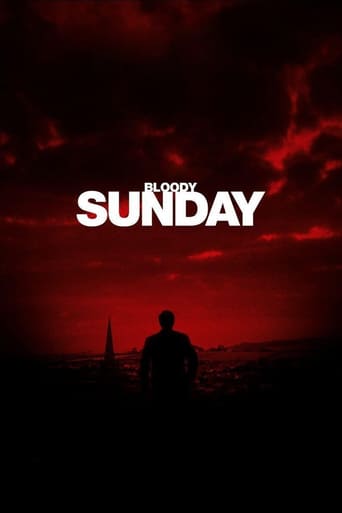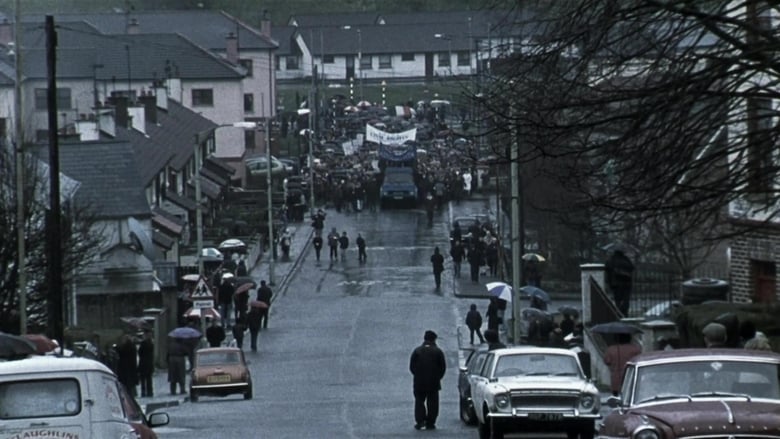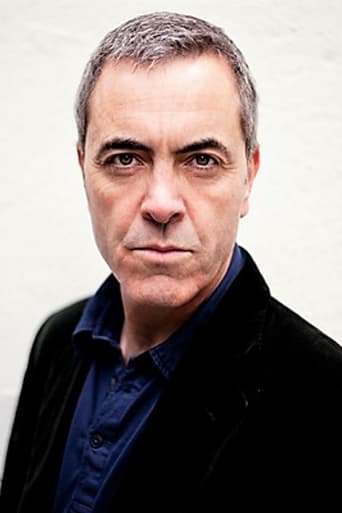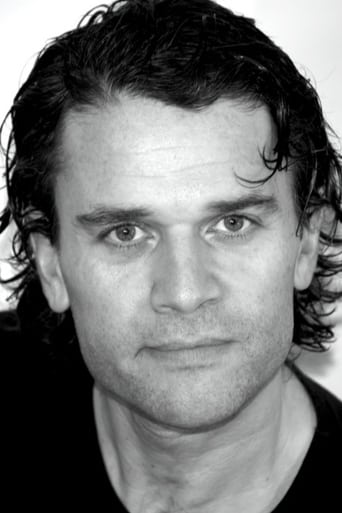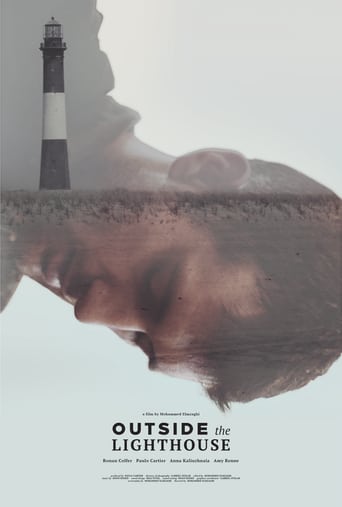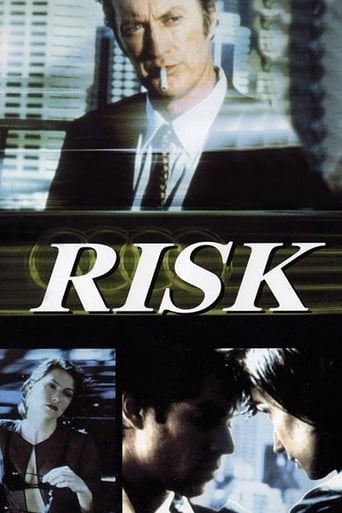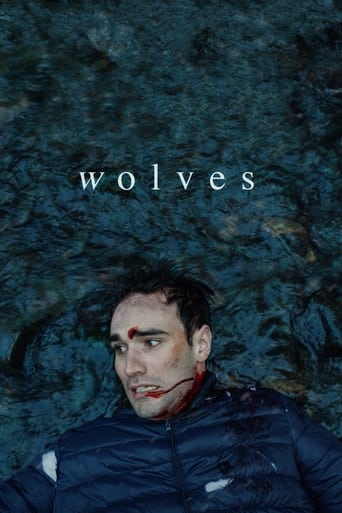Bloody Sunday (2002)
The dramatised story of the Irish civil rights protest march on January 30 1972 which ended in a massacre by British troops.
Watch Trailer
Cast
Similar titles
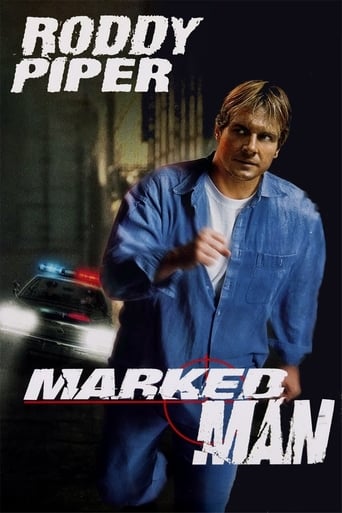

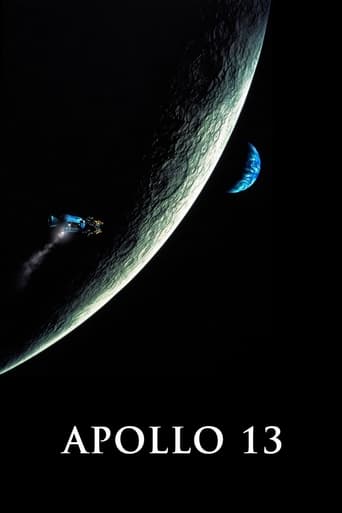
Reviews
Fresh and Exciting
In truth, there is barely enough story here to make a film.
While it doesn't offer any answers, it both thrills and makes you think.
The film may be flawed, but its message is not.
This film highlights the dark cloud over Northern Ireland following the incident occurring on 30 January 1972 in which British soldiers fired on unarmed civilians taking part in a supposedly-peaceful march in the Bogside area of Derry. What happened? Why are they throwing stones?, What triggers the bloody event? Those questions really should have been thought of when producing this film. First of all, as a part of crucial historical event, I feel that this film doesn't give proper introduction to the situation described even though some people can easily relate the title with the incident. Let us be logical, this wasn't the first massacre happened, events like this(whether more or less violent) may occur every day all over the globe to any unfortunate human race, just like the one occurred in Carandiru, Brazil. Despite the improper introduction, Paul Greengrass in a daring way portrayed this turmoil in such an honest, shocking, scary, daunting, disturbing and creepy way. I also admire the way he merged some original footages to the shoot, making it look even more real. The authentic feel of a documentary film obtained through the use of hand-held camera work is superb. This results in stunning realism, one feels part of that fateful day when dialog fails, when a supposedly peaceful demonstration ends with suppressed side stones with water, rubber bullets, tear gas, to lead to the negative lead bullets which crippled the lives of 13 people transforming into a killing with impunity which had no punishment to those responsible. The soundtrack, including U2's "Sunday Bloody Sunday", is also exquisitely composed and inserted here and there at the right moment. In short, the visual really helps the public understand various factors that lead to the events that occur in this film.
Director Paul Greengrass's retelling of the events in Derry, Northern Ireland on January 30, 1972, where an ostensibly peaceful march for civil rights ended in bloodshed.The facts are that 13 protesters were shot and killed by a British Paratroop regiment brought into try and capture supposed hooligans using the march as cover. In the immediate aftermath the Army claimed they were fired upon and simply responded with appropriate force. The eyewitnesses including some members of the media tell a different story now corroborated by at least one of the soldiers indicating that there was little if any provocation. This is the perspective from which the story is told. It is also the consensus of the film makers that this event did much to escalate the "Troubles".The film gives glimpses of individuals amongst both the protesters and British Army. Our main protagonist is one of the marches primary organizers Ivan Cooper (James Nesbitt) a Protestant and a Nationalist who strongly extolled non-violent protest. We also focus on one of the young protesters and several member of the British Army some of whom are more sympathetic than others.The film employs a simple looking documentary style, with hand held cameras and no additional lighting. The color is de-saturated in what has become a short hand style of retelling historical events. The events in the story transpire over a 24 hour period.The cast features some talented veteran actors alongside a large number of non-actors, including locals from Derry who were there on that day or in several instances relatives of some of the victims. Also many of the soldiers in the film were former soldiers, some having served in Northern Ireland and at least two of which were actual Paratroopers.
When Paul Greengrass was named as the new director in the Bourne series, people had no idea who he was. When he began filming United 93, people wondered what a Brit was doing telling the story of a plane full of American heroes. The answers to these questions always seemed to make mention of the film Bloody Sunday. That reasoning, upon seeing Greengrass's first major film, holds up strongly. What is now my favorite film of his, the story of that fateful day where a peaceful civil rights march ended in bloodshed and murder by the government, is portrayed as realistically and heart-wrenchingly as possible without it being actual documentary footage. It takes guts being English and deciding to take on a tale of injustice by his people over the Irish. When I saw United 93, I left the theatre thinking that no one could have done it any better; this film paved the way, ushering in a new artist able to put emotion and tragedy on screen without ever letting even one moment seem false.The hand-held filming technique that he has utilized so well in his subsequent films is on display throughout. Always inside the action, the camera follows Parliament member Ivan Cooper while he goes around Derry readying his constituents for their peace march to the civil rights rally. He is a man that is loved by all for both his charisma and his willingness to be among the people during their fight for the rights they deserve. The younger generation and high ranking members of the IRA know him and respect what he is doing, but they feel peace won't cause change, that they must fight fire with fire. Because of this, and some previous altercations that left British troops injured or killed, the English government has decided to go in and make an example of their power. What begins as a covert operation, to accompany their roadblocks and strong numbers around the town, with a mission to grab IRA members on their wanted list, soon escalates to a massacre of civilians at the hands of adrenaline pumping soldiers who had to wait too long to get out into the action.All the acting is phenomenal across the board. Young Gerry, played by Declan Duddy, has just gotten out of jail and decides to go with friends to the march, knowing he is risking getting caught again. Duddy does well portraying the love for his girlfriend and his desire to stay outside for her; he knows when he has gotten too close to the troops and tries to go with Cooper's group to the rally, but his mates won't let him. When his cousin is killed with a bullet from the troops, troops whom were supposed to be equipped only with rubber, all that goes away. The horror and shock of what has begun to transpire never leaves his face or actions and what eventually happens to his character is truly tragic and disgusting on the part of the British. On their side, both Nicholas Farrell and Gerard McSorley are great as the men behind the scenes, listening to what is happening on the streets. McSorley's police chief tries to tell Farrell that they should just let the march happen because the kids out there could be too dangerous otherwise. Farrell speaks of how they will use minimum force and throughout the course of events, he constantly tells his men to stand down while they take it upon themselves to move when they have the chance. He is powerless from his position and he knows what kind of tragedy has occurred and that it will end up being on his watch. Standing idle for too long made the soldiers antsy and when they had the opportunity they took it. After the incident, the conversations among the men are atrocious. Bragging about how many they got and the invigorating feeling of it all is appalling, however, not as bad as the one soldier among them who felt remorse at all points, even screaming about the ceasefire while his compatriots continued mowing down innocents. What he ends up doing could possibly be looked upon as worse than the men who actually killed people; his soldier that could have been a voice of truth ends up being a disgusting display of hiding ones' guilt.Shining above all, though, is James Nesbitt as Cooper. An actor that doesn't get enough recognition or work this side of the Atlantic, despite nice turns in Waking Ned Devine and Millions, he is fantastic. His modesty and compassion with the people is contagious at the beginning. He goes through the streets telling the troops that the march will be going, but it will be peaceful, and with every young hooligan he passes he goes to them and says to calm down and join their non-violent demonstration. He tries his hardest to use his political position to stop the riot that begins, but his idealism never prepares him for what happens. What began as Irishmen throwing rocks became two innocents shot down in cold blood. When the hooligans run away to the rally, all hell breaks loose with women and children needing to take cover from the gunfire. Nesbitt's reaction when his friend Barney tries to surrender is heart-breaking and when he goes to the hospital after it all, he is absolutely genuine in his grief. The glue that holds everything in the movie together, Nesbitt's concluding speech to the media is hard to watch. A man full of hope for freedom has finally had his eyes opened to the violence and physical tyranny at hand. He is correct when he says that the incident ended the civil rights movement, from that point on there could be no more peaceful marches. Bullets needed to be matched with bullets and young men on the fence of battle were finally swayed to join the war full steam ahead.
for my as level case study we watched bloody Sunday. we watched this film after watching "in the name of the farther" which everyone in my class enjoyed.however i don't think there was a single person in my class who enjoyed bloody Sunday. im not dismissing the fact that it was an important event, and im not slating it for any reason to do with that. i simply thought much of the acting was poor ( i.e. British troops) and that some of the editing was a bit tiresome e.g. fades.all in all the film was very successful , however in my opinion i felt ti was overrated.
